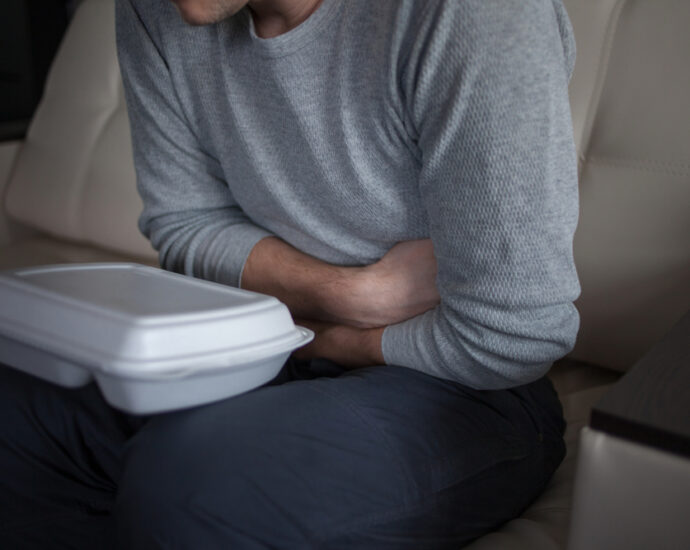Food poisoning is a common and potentially dangerous condition that affects millions of people worldwide every year. It occurs when you consume food or beverages contaminated with harmful bacteria, viruses, parasites, or toxins. While most cases of food poisoning resolve on their own within a few days, some can lead to severe complications, especially in vulnerable populations such as young children, the elderly, pregnant women, and individuals with weakened immune systems.
Understanding the symptoms, causes, treatment, and prevention of food poisoning is essential for safeguarding your health and well-being.
Page Contents
Symptoms of Food Poisoning:
The symptoms of food poisoning can vary depending on the type of contaminant ingested and the individual’s health status. However, common symptoms include:
- Nausea
- Vomiting
- Diarrhea
- Abdominal pain or cramps
- Fever
- Headache
- Muscle aches
- Fatigue
In severe cases, food poisoning can lead to dehydration, electrolyte imbalances, organ failure, and even death. Therefore, it’s crucial to seek medical attention if you experience severe symptoms or if you belong to a high-risk group.
Causes of Food Poisoning:
Food poisoning can be caused by various pathogens, including bacteria (such as Salmonella, Escherichia coli, Campylobacter, and Listeria), viruses (such as norovirus and hepatitis A), parasites (such as Giardia and Cryptosporidium), and toxins produced by certain bacteria (such as Staphylococcus aureus and Clostridium botulinum). These contaminants can enter food at any stage of production, processing, handling, or storage, leading to contamination and subsequent illness when consumed.
Treatment for Food Poisoning:
Treatment for food poisoning typically focuses on managing symptoms and preventing complications. In most cases, people with mild to moderate symptoms can recover at home by following these guidelines:
- Stay hydrated by drinking plenty of fluids such as water, clear broths, or oral rehydration solutions to replace lost fluids and electrolytes.
- Rest to allow your body to recover and heal.
- Avoid solid foods until vomiting and diarrhea have subsided. When you resume eating, start with bland, easy-to-digest foods like crackers, rice, bananas, and toast.
- Over-the-counter medications such as anti-diarrheal drugs or anti-nausea medications may help alleviate symptoms, but they should be used with caution and under the guidance of a healthcare professional.
In severe cases or for individuals at high risk of complications, medical intervention may be necessary. This may include hospitalization for intravenous fluids and electrolyte replacement, antibiotic therapy (for bacterial infections), and supportive care.
Prevention of Food Poisoning:
Preventing food poisoning begins with safe food handling practices at every stage of food preparation and consumption. Here are some essential tips to reduce the risk of contamination:
- Wash your hands thoroughly with soap and water before handling food, after using the bathroom, and after touching pets or livestock.
- Keep raw meat, poultry, seafood, and eggs separate from ready-to-eat foods to prevent cross-contamination.
- Cook foods to their recommended internal temperatures to kill harmful bacteria. Use a food thermometer to ensure proper cooking.
- Refrigerate perishable foods promptly (below 40°F or 4°C) and thaw frozen foods safely in the refrigerator, cold water, or the microwave.
- Clean and sanitize kitchen surfaces, utensils, and cutting boards regularly, especially after handling raw meat, poultry, seafood, or eggs.
- Avoid consuming unpasteurized dairy products, raw or undercooked meats and seafood, and foods prepared under unsanitary conditions.
By following these preventive measures, you can reduce your risk of food poisoning and enjoy safe and nutritious meals.
In conclusion, food poisoning is a significant public health concern that can affect anyone, regardless of age or health status. By understanding the symptoms, causes, treatment, and prevention of food poisoning, you can take proactive steps to protect yourself and your loved ones from this preventable illness. Remember to practice safe food handling and hygiene habits to minimize the risk of contamination and enjoy a healthy and fulfilling life.
READ MORE: Proper Food Storage
Sources:
https://www.nhsinform.scot/illnesses-and-conditions/infections-and-poisoning/food-poisoning/
https://www.webmd.com/digestive-disorders/remedies-for-food-poisoning
https://www.cdc.gov/foodsafety/food-poisoning.html
